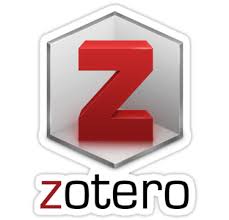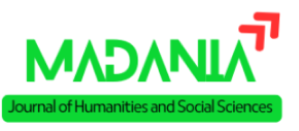Pengelolaan Zakat, Infak, dan Sedekah dalam Perspektif Maqasid Syariah: Studi Kasus LAZDA RIZKI Jember
DOI:
https://doi.org/10.59240/kjsk.v5i2.292Keywords:
zakat, sedekah, infak, maqasid syariah, poverty alleviation, economic empowermenAbstract
Indonesia, with a population of 284.4 million as of March 2024, continues to face poverty challenges, with 25.22 million people (9.03%) living below the poverty line. Zakat, Infak, and Sedekah (ZIS) possess substantial potential as instruments for poverty alleviation and socio-economic empowerment, yet their implementation remains suboptimal. This study aims to analyze the management of ZIS, covering collection, distribution, and utilization, examine strategies for improving community welfare, and assess their alignment with the principles of Maqasid al-Shariah as formulated by Imam al-Syatibi. Employing a descriptive qualitative method with sociological and normative approaches, the research draws on primary data obtained through interviews and observations at LAZDA RIZKI Jember, complemented by secondary data from institutional documents and relevant literature. The findings reveal that the ZIS management at LAZDA RIZKI, including innovative programs such as the Creative Empowerment Center (Balai Kreatif), systematically reflects the realization of the five core objectives of Maqasid al-Shariah: protection of religion, life, intellect, progeny, and wealth. This study contributes to the discourse on ZIS governance from a Maqasid-based perspective and offers practical insights for zakat institutions in optimizing their role in advancing social welfare.
References
Afifah, N. W. I., & Muhtadi, A. (2022). Perlindungan harta dalam perspektif Maqashid Syariah (Kajian Hifzh al-Mal dalam Ekonomi Islam). Jurnal Ilmiah Ekonomi Islam, 8(2), 115–128. https://journal.iaingorontalo.ac.id/index.php/takaful/article/download/3343/1545
Afnan, M. (2022). Urgensi pendidikan Islam dalam menjaga agama (Hifzh al Din) perspektif Maqashid al Syari’ah. Jurnal Ilmu Pendidikan Islam, 5(2), 105–117. https://ejournal.insuriponorogo.ac.id/index.php/attarbiyah/article/download/1254/747
Akbar, A. (2021). Pengelolaan zakat di Indonesia dalam Undang-Undang No. 23 Tahun 2011 perspektif Maqasid Asy Syatibi (W. 790 H/1388 M) [Tesis doktoral, Universitas Islam Negeri Sumatera Utara].
Aziz, J. A. (2015). Abu Ishaq Ibrahim Ibn Musa Al Syathibi and his opinion on the dichotomy of ‘ibadat and ‘adat in Islamic law. Al Ihkam: Jurnal Hukum & Pranata Sosial, 10(2), 189–204.
Aziz, M. (2017). Strategi pengelolaan zakat secara produktif pada lembaga amil zakat dalam tinjauan UU RI Nomor 23 Tahun 2011 tentang pengelolaan zakat (Studi kasus di Nurul Hayat kantor cabang Tuban periode 2015–2016). Al Hikmah: Jurnal Studi Keislaman, 7(1).
Badan Pusat Statistik. (2024). Perkembangan indikator sosial ekonomi Indonesia Maret 2024. https://www.bps.go.id
Badan Pusat Statistik. (2024, Juli 1). Persentase penduduk miskin Maret 2024 turun menjadi 9,03 persen. https://www.bps.go.id/id/pressrelease/2024/07/01/2370/persentase-penduduk-miskin-maret-2024-turun-menjadi-9-03-persen-.html
Creswell, J. W., & Poth, C. N. (2018). Qualitative Inquiry and Research Design: Choosing Among Five Approaches (4th ed.). SAGE Publications.
Given, L. M. (2016). 100 Questions (and Answers) About Qualitative Research. SAGE Publications.
Habib, M. (2020). Faktor ekonomi sebagai alasan perceraian. As Syar'i: Jurnal Bimbingan & Konseling Keluarga, 2(2), 253–261. https://ejournal.iainkendari.ac.id/index.php/As-Syari/article/view/1845
Kadir, A., Hakim, M. R., Syam, F., & Karim, M. S. (2020). Penggunaan dana zakat pada korban Covid-19 perspektif Maqashid Syariah. Al Tafaqquh: Journal of Islamic Law, 1(2), 107–116.
Kang, S. (2016). Inequality and crime revisited: effects of local inequality and economic segregation on crime. Journal of Population Economics, 29(2), 593–626. https://doi.org/10.1007/s00148-015-0579-3
Kurniati, D. (2021). Pengaruh sosialisasi, religiositas, dan pengetahuan terhadap persepsi masyarakat tentang perbankan syariah (Studi di Gayo Lues) [Tesis doktoral, UIN Ar Raniry].
Lutfi, M. (2023). Implementasi Maqashid Syariah pada zakat produktif di BAZNAS DKI Jakarta dan LAZ Dompet Dhuafa. An Nawawi, 3(1), 43–52.
Mingka, A. (2014). Reaktualisasi dan kontekstualisasi fiqih muamalah keindonesiaan. Shahih: Journal of Islamicate Multidisciplinary, 1(2), 103–120. https://ejournal.uin-suka.ac.id/syariah/Shahih/article/view/040102
Palupi, N. W. I., & Ummah, S. R. (2025). Konsep dan praktik metode kualitatif untuk penelitian sosial. Jurnal RISOMA: Riset Sosial Keagamaan, 3(1), https://journal.appisi.or.id/index.php/risoma/article/view/860
Partanto, P. A., & Al Barry, M. D. (1994). Kamus ilmiah populer. Arkola.
Rahman, A. (2022). Urgensi Hifzh al ‘Aql dalam pendidikan Islam perspektif Maqashid Syariah. Al Murabbi: Jurnal Studi Kependidikan dan Keislaman, 8(1), 77–92. https://jurnal.stitpn.ac.id/index.php/al-murabbi/article/download/504/340
Rahmatullah, H. K., et al. (2022). Analisis pendayagunaan zakat di LAZ RIZKI Jember melalui program Sell for Charity tahun ajaran 2021/2022. Jurnal UIN KHAS Jember.
Sartika, D. (2022). Konsep Hifzh al Nafs dalam Maqashid Syariah dan relevansinya dengan kesehatan mental. Jurnal Al Ishlah: Jurnal Studi Hukum Islam, 20(1), 55–66. https://ejournal.iainkendari.ac.id/alishlah/article/download/4205/1875
Setiadi, E. M., & Kolip, U. (2011). Pengantar sosiologi. Kencana Prenada Media Group.
Sholeh, M. (2021). Peningkatan angka perceraian di Indonesia: faktor penyebab khulu’ dan akibatnya. Qonuni: Jurnal Hukum dan Pengkajian Islam, 1(1), 29–40.
Sihombing, A. (2021). Analisis pengelolaan dana zakat, infak, sedekah (ZIS) dalam meningkatkan ekonomi dhuafa (Studi kasus Lembaga Amil Zakat Dompet Dhuafa Cabang Medan) (Disertasi, Universitas Islam Negeri Sumatera Utara).
Sugiyono. (2017). Metode penelitian kuantitatif, kualitatif, dan R&D. Alfabeta.
Syarif, A. (2021). Konsep Hifzh al Nasl dalam Maqashid Syariah dan implementasinya dalam keluarga Islam. Jurnal Al Qadau: Peradilan dan Hukum Keluarga Islam, 8(1), 35–49.
Downloads
Published
How to Cite
Issue
Section
License
Copyright (c) 2025 Eka Ginanjar Permana, Musyafi

This work is licensed under a Creative Commons Attribution-NonCommercial-ShareAlike 4.0 International License.






